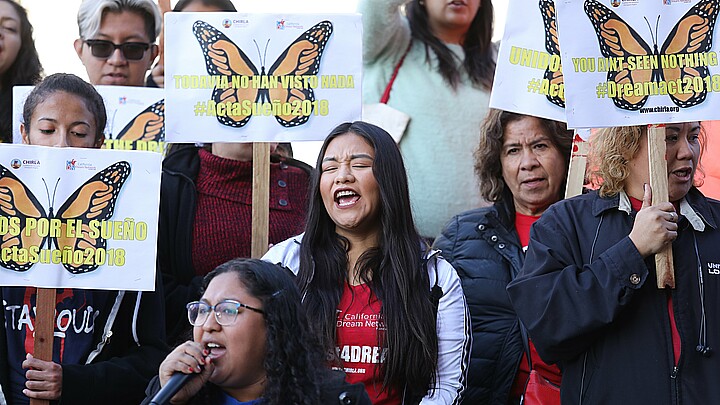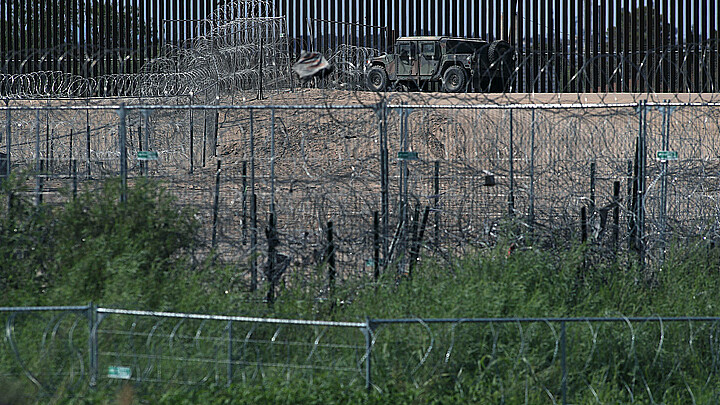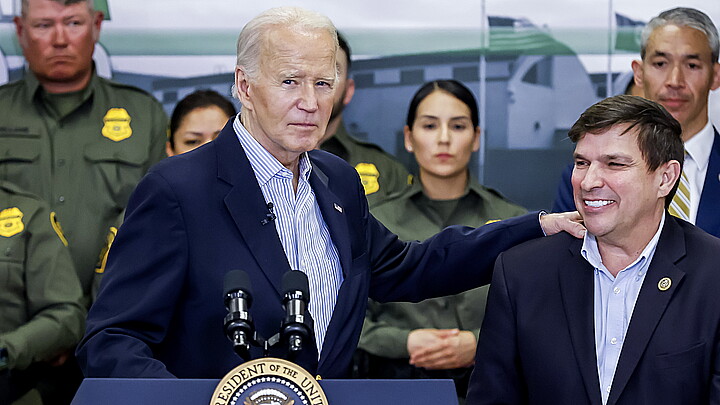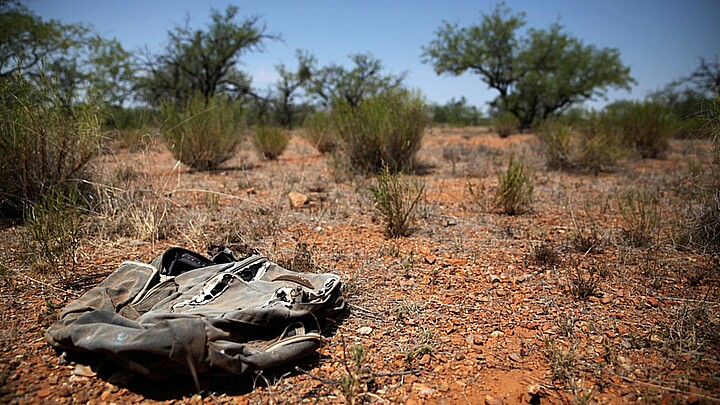Immigration
Texas to install floating border wall in Rio Grande to stop migrant crossings
"Because of the water and buoyancy, it’s hard to be able to go through these. Very difficult to go over," said Col. Steven McCraw of the Texas Department of Safety

June 9, 2023 5:49am
Updated: June 9, 2023 9:16am
Texas plans to install a 1,000-foot floating barrier in the Rio Grande to prevent undocumented migrants from crossing the U.S.-Mexico border, Texas Gov. Greg Abbott announced on Thursday.
“We can put mile after mile after mile of these buoys,” Abbott said during a bill signing event a the Texas State Capitol.
The new “water-based barrier” is made up of four-foot-wide buoys that are equipped with weights and netting, and are designed to rotate if someone attempts to climb over them.
"Because of the water and buoyancy, it’s hard to be able to go through these. Very difficult to go over," said Col. Steven McCraw of the Texas Department of Safety.
The first 1,000 feet of new kind of barrier will first be installed in the city of Eagle Pass “pretty much immediately” on July 7. Eagle Pass, across from Piedras Negras in the state of Coahuila, Mexico, is one of the hotspots for migrant crossings of the U.S-Mexico border, according to Texas officials.
Abbott said that the project can then be expanded and additional floating barriers will be installed in other prime locations for migrant crossings.
“When we’re dealing with gatherings of 100 or 1,000, one of the goals is to slow down and deter as many of them as possible,” Abbott added, claiming that the new measure would prevent migrants from even reaching the border.
The governor said that the barrier will be paid for by the more than $5 billion in funding for border security operations passed by the Texas Legislature this year.
During Thursday’s ceremony, Abbott signed a total of six bills related to border security, including one that classifies Mexican drug cartels as foreign terrorists and another that authorizes the Texas Military Department’s use of drones to secure the border.
"Washington, D.C., has failed to do [their] job to secure the border," Abbott said. "As a result, Texas has had to take unprecedented steps and [respond] to the crisis caused by the [Biden] administration on the border."










